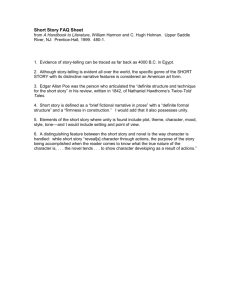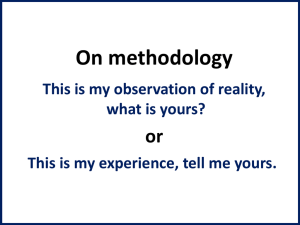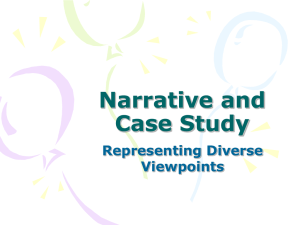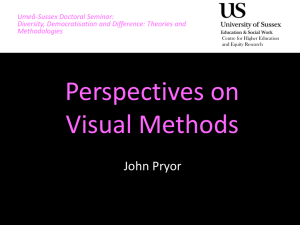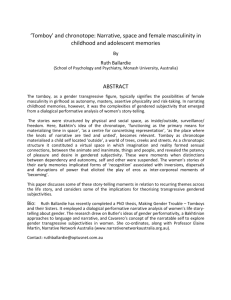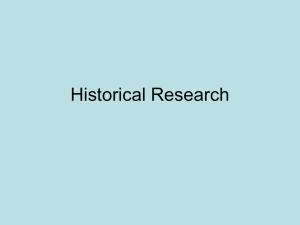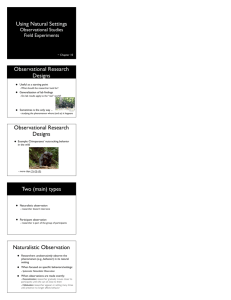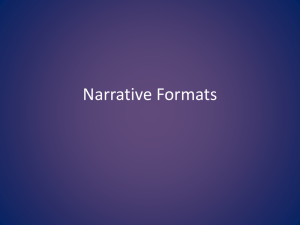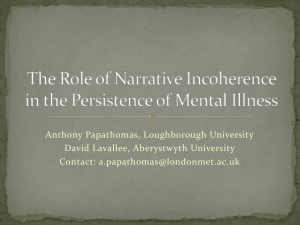5. Action Oriented Research
advertisement
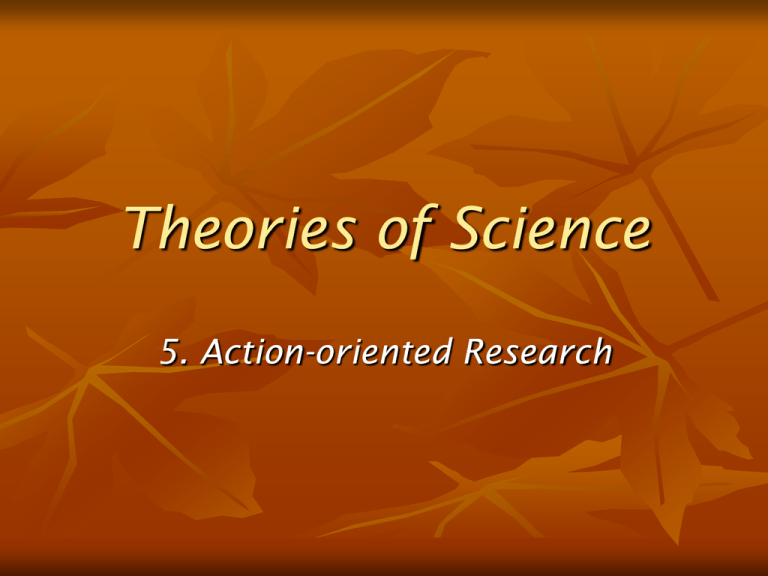
Theories of Science 5. Action-oriented Research Action oriented research Also known as advocacy, or partisan research research for social change participatory appraisal, or assessment collaborative, or dialogue research organizational learning Elements of Action Oriented Research personal engagement in what is studied narrative forms of presentation reflective ambition giving voice, making visible, opening spaces ”conscientization” (Friere) Roots in Pragmatism American theory of knowledge founded by Peirce, James, Dewey grew out of ”progressive” movement truth based in practice (justification) science as problem solving (discovery) Phronesis Aristotle’s third form of knowledge: a kind of ethical wisdom expertise in making judgments knowledge situated or localized beyond the theoretical and the practical Action research outgrowth of labor movement: ”old social movements” related to social reform in cities neighborhood, or factory focus science as empowerment Technology assessment outgrowth of student revolts, critiques of ”big science” and Vietnam War focus on social and environmental consequences of technology US Office of Technology Assessment (OTA) played paradigmatic role Proactive TA and EIA European appropriations in 1980s, influenced by nuclear energy debates citizen-expert communication, or ”communicative rationality” (Habermas) consensus conference model Participatory rural appraisal a form of development research focus on competence building emphasis on dialogue methods ”putting people first” (Chambers) Degrees of involvement partisanship, identification: ”taking sides” participation, critical friendship: ”helping out” professional detachment, academic distance: ”giving advice” Varieties of case study microcosm approach: the case as a world of its own comparative approach: the case as representative of a broader pattern exemplary approach: the case as a ”good example” or ”best practice” Types of processes studied ongoing processes: research as intervention, or interactive assessment finished processes: research as evaluation, or reactive assessment future processes: research as forecasting, or foresighting The Researcher’s Role ”fly on the wall” ”spider in the web” ”queen bee in the honeycomb” ”Fly on the wall” traditional academic ideal researcher as participatory observer neutral, objective role ”deconstructive” story-telling scientific narrative approach ”Spider in the web” pragmatic, democratic ideal researcher as facilitator normative, partisan role ”constructive” story-telling dramaturgical narrative approach ”Queen bee in the honeycomb” managerial, leadership ideal researcher as catalyst, or change agent expert consultant, advisory role ”reconstructive” story-telling evaluative narrative approach
